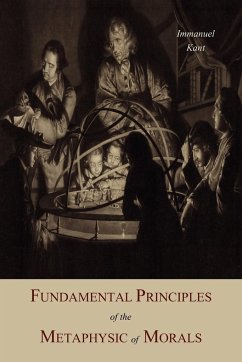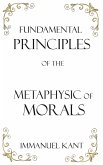2011 Reprint of 1949 Edition. Full facsimile of the original edition, not reproduced with Optical Recognition Software. Also known as "The Groundwork of the Metaphysic of Morals." This is Kant's first contribution to moral philosophy. It argues for an a priori basis for morality. Where the "Critique of Pure Reason" laid out Kant's metaphysical and epistemological ideas, this relatively short, primarily meta-ethical, work was intended to outline and define the concepts and arguments shaping his future work, "The Metaphysics of Morals". The treatise is broken into a preface, followed by three sections. Kant's argument works from common reason up to the supreme unconditional law, in order to identify its existence. He then works backwards from there to prove the relevance and weight of the moral law. The third and final section of the book is famously obscure, and it is partly because of this that Kant later, in 1788, decided to publish the Critique of Practical Reason.








